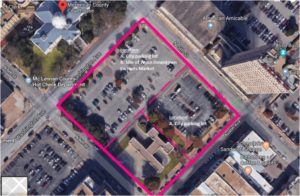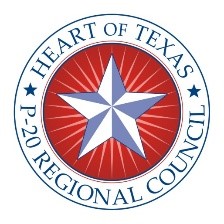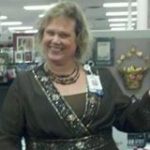(To read this post in English, Click here. )
Por Jaime Carias
Durante la última década, he tenido el honor y el privilegio de trabajar con padres por todo el país que vienen de todos los caminos de la vida. Trabajando con los padres en diferentes escuelas y centros comunitarios ha impactado mi perspectiva sobre la participación familiar. Cada experiencia en mi línea de trabajo ha reforzado mi creencia en la importancia de la participación de los padres durante el viaje educativo K-12 de sus hijos. Entre mas pronto trabajemos con los padres para demostrar el valor que aportan al éxito educativo de sus hijos, mas posibilidad tenemos para mantenerlos comprometidos.
Los padres siempre me preguntan, “Sr. Carias, ¿con quién le gusta trabajar más? ¿Con nuestros hijos, con los maestros, o con nosotros los padres?” A lo que les respondo: “Me gusta trabajar con todos.” Para que nuestros hijos tengan éxito dentro y fuera del salón y persigan una educación universitaria, los tres equipos: los estudiantes, los padres y los maestros necesitan que trabajar en colaboración y no uno contra el otro. La comunicación es clave para establecer la confianza entre los tres equipos. Los padres continúan a preguntarme, “Pero si tuvieras que elegir un grupo con quien trabajar, ¿a quién elegirías?” Cuando me preguntan esa pregunta nuevamente (que ha sucedido varias veces) no puedo evitar pararme y mirar a los padres que me están preguntando. La respuesta es simple: me gusta trabajar con los padres. Creo firmemente que el éxito estudiantil comienza en la casa, y me he comprometido personalmente a trabajar con los padres de todo el país para ayudar a cambiar la narrativa tóxica que a los padres no les importa participar en la educación de sus hijos. Durante muchos años, esta narrativa falsa ha obstaculizado a las comunidades de color, al ser retratadas como comunidades desinteresadas en la educación formal. En cambio, los educadores necesitan que crear oportunidades para que los padres participen. Aun más importante, es que los educadores deben de ayudar a los padres comprender el valor que ser involucrados le inculca al éxito personal, académico y profesional de sus hijos.
En nuestro libro “Buscando Vida, Encontrando Éxito: La Fuerza de la Cultura Latina en la Educación”, destacamos el viaje y los obstáculos que enfrentan los padres cuando hablan sobre el éxito educativo, la matriculación universitaria, y las trayectorias profesionales con los hijos. No es inusual que las familias de bajos ingresos no comprendan la razón por la cual los hijos o hijas se salen de la casa para asistir la universidad. Nuestro libro es una guía práctica para ayudar a los padres a entender cómo convertirse en partidarios proactivos en el camino educativo de sus hijos. La influencia de la familia en la decisión de asistir la universidad es enorme para los estudiantes. Otras veces, los padres no participan y el estudiante se queda solo para tomar estas decisiones tan difíciles. A través de nuestras investigaciones, hemos descubierto que los padres quieren que sus hijos tengan éxito en la escuela. Sin embargo, muy pocos de ellos comprenden el papel que juegan en cumplir esta visión con sus hijos. En mis presentaciones, busco cambiar esta narrativa. Me enfoco en convencer a los padres sobre el valor de desarrollar una mentalidad de crecimiento para crear culturas universitarias en sus hogares. Cambiar la narrativa de una mentalidad fija a una mentalidad de crecimiento permite a los padres comprender el valor del aprendizaje continuo y la participación familiar. Como educadores, tenemos que desarrollar una programación culturalmente competente para los padres de color para que se sientan bienvenidos y puedan participar activamente en el sistema escolar K-12.
 Estoy muy emocionado por mi visita al distrito Waco, donde entregare mi programación para padres y estudiantes. Como estudiante universitario de primera generación que nació y se crió en South Central Los Ángeles por padres de Guatemala, entiendo la lucha y viaje de los estudiantes y los padres que voy a servir esta semana en el distrito Waco. Continuaremos a trabajando juntos para brindar las oportunidades de éxito que los padres buscan para sus hijos. Nuestros hijos necesitan prosperar y no solo sobrevivir en el mundo del siglo 21. Mientras los educadores desarrollan programación para los padres y estudiantes, debemos de acordarnos que todo empieza en la casa. Todos estamos igualmente invertidos en el futuro éxito de nuestra juventud; los educadores y los padres deben de trabajar juntos para alcanzar ese objetivo común. Espero conocer a todos durante mi visita al distrito Waco.
Estoy muy emocionado por mi visita al distrito Waco, donde entregare mi programación para padres y estudiantes. Como estudiante universitario de primera generación que nació y se crió en South Central Los Ángeles por padres de Guatemala, entiendo la lucha y viaje de los estudiantes y los padres que voy a servir esta semana en el distrito Waco. Continuaremos a trabajando juntos para brindar las oportunidades de éxito que los padres buscan para sus hijos. Nuestros hijos necesitan prosperar y no solo sobrevivir en el mundo del siglo 21. Mientras los educadores desarrollan programación para los padres y estudiantes, debemos de acordarnos que todo empieza en la casa. Todos estamos igualmente invertidos en el futuro éxito de nuestra juventud; los educadores y los padres deben de trabajar juntos para alcanzar ese objetivo común. Espero conocer a todos durante mi visita al distrito Waco.
 Jaime Carias nació y fue criado en el Sur Centro de Los Angeles por dos inmigrantes Guatemaltecos. Ha dedicado toda su carrera a ayudar a jóvenes y padres en la búsqueda de mejores oportunidades en la escuela y en la vida. Carias ha aparecido en varios medios de comunicación nacionales y locales por su trabajo en el desarrollo de programas educativos y programas de comunidad que crean acceso a la educación superior y apodera a las comunidades desatendidas en este país.
Jaime Carias nació y fue criado en el Sur Centro de Los Angeles por dos inmigrantes Guatemaltecos. Ha dedicado toda su carrera a ayudar a jóvenes y padres en la búsqueda de mejores oportunidades en la escuela y en la vida. Carias ha aparecido en varios medios de comunicación nacionales y locales por su trabajo en el desarrollo de programas educativos y programas de comunidad que crean acceso a la educación superior y apodera a las comunidades desatendidas en este país.
(Para leer este artículo en español, haz clic aquí.)
By Jaime Carias
Over the past decade, I have had the honor and privilege of working with parents across the country from all walks of life. Working with parents at different schools and community centers has impacted my outlook on family engagement. Every experience in my line of work has reinforced my belief in the importance of parent engagement during their children’s K-12 educational journey. The earlier that we work with parents to demonstrate the value that they bring to the educational success of their children, the better chance we have at keeping them engaged.
Parents always ask me, “Mr. Carias who do you like to work with the most? Our children, their teachers, or us parents?” To which I reply, “I enjoy working with everyone.” In order for our children to succeed in and out of the classroom and pursue a college education, all three teams: students, parents, and teachers need to work collaboratively and not against each other. Communication is key towards establishing trust amongst all three teams. Parents continue to ask me, “but if you had to choose one group to work with who would you choose?” When asked that question again (it has happened multiple times) I can’t help but stop and look at the parents asking me this question. The answer is simple: I enjoy working with parents. I am a firm believer that student success begins at home, and I have made it my personal commitment to work with parents across the country to help change the toxic narrative that parents do not care to be involved. For so many years this false narrative has hindered underrepresented communities and students of color by being portrayed as disinterested in education. Instead, educators need to create opportunities for parents to become involved. Most importantly, educators must help parents understand the value that being involved brings to their children’s personal, academic, and professional success.
In our book “Buscando Vida, Encontrando Exito: La Fuerza de La Cultura Latina en la Educacion” (Accomplishing Success: Supporting Our Children with The Power of Culture) we highlight the journey and obstacles parents encounter when discussing educational success, educational goals, college enrollment, and career paths with their children. It’s not unusual for low-income families to fail to understand why their sons or daughters might want to go away for college. Our book is a practical guide meant to help parents understand how to become proactive advocates in their children’s educational journey. The influence of family on a student’s college-going decision is huge. Other times, parents are not involved at all and the student is left on their own to make very difficult decisions. Through our research, we have discovered that parents want their children to succeed in school, yet very few of them fully comprehend the role that they play in helping their children fulfill that vision. In my presentations, I seek to change this narrative. I focus on having parents understand the value of developing growth mindsets to create college-going cultures in their homes. Changing the narrative from a fixed-mindset to a growth-mindset allows parents to understand the value of continuous learning and family engagement. As educators, we have to develop culturally competent programming for parents of color so that they can feel welcome and can actively participate in the K-12 school system.
 I am very excited to visit Waco ISD for student and parent programming. As a first-generation college student who was born and raised in South Central Los Angeles by Guatemalan parents, I understand the struggle and journey of the students and parents I will be serving this week in WISD. Collectively we will continue to work together to provide the opportunities parents seek for their children. Our children need to thrive and not just survive in the world of the 21st century. We need to remember that it all starts at home, as we move forward and develop student and parent programming. We are all equally invested in the future success of our youth; educators and parents need to collectively work together towards that common goal. I look forward to meeting everyone in the WISD.
I am very excited to visit Waco ISD for student and parent programming. As a first-generation college student who was born and raised in South Central Los Angeles by Guatemalan parents, I understand the struggle and journey of the students and parents I will be serving this week in WISD. Collectively we will continue to work together to provide the opportunities parents seek for their children. Our children need to thrive and not just survive in the world of the 21st century. We need to remember that it all starts at home, as we move forward and develop student and parent programming. We are all equally invested in the future success of our youth; educators and parents need to collectively work together towards that common goal. I look forward to meeting everyone in the WISD.
 Jaime Carias was born and raised in the low-income community of South Central Los Angeles to Guatemalan immigrant parents and has dedicated his entire career to helping young people and parents seek better opportunities in school and in life. Carias has been featured on several national and local media outlets for his work developing educational and community-engaging programs aimed at creating access to higher education and empowering underserved communities across the country like his.
Jaime Carias was born and raised in the low-income community of South Central Los Angeles to Guatemalan immigrant parents and has dedicated his entire career to helping young people and parents seek better opportunities in school and in life. Carias has been featured on several national and local media outlets for his work developing educational and community-engaging programs aimed at creating access to higher education and empowering underserved communities across the country like his.
by Steve Orr
When people ask me why I, a man, am a member of the League of Women Voters, I find it helps to recount my voting journey.
I’ve been voting for almost half a century. I find that realization sobering. To think that this country allowed a mere 18-year old to attempt to shape it. And I did do that —attempt to shape this country— and I did so every chance I got. I haven’t always succeeded, but I have always made my best effort to do so.
Sometimes I voted for winners. Sometimes, my vote went to the eventual loser in the race. And sometimes, when I voted for the winner, I was later unhappy with the conduct of that elected official. Regardless, I still voted. I still made my attempt at shaping my country. In those instances when the eventual outcome was disappointing, I vowed to do better the next time … knowing full well that I would vote the next time.
In addition to people, I also voted into existence school and road bonds, resolutions expanding or restricting how people could act, and, from time to time, non-binding resolutions that, for good or ill, never produced any activity at all. Yes, I have done all of that in my near half century.
But I didn’t do it alone.
And I didn’t do it without guidance. I have been referencing the League of Women Voters Election Guide for most of my voting life.
From the very beginning, it has been a companion on which I depended … for a clear description of the candidates, the issues, and the pending legislation. In the flurry of political advertising, flyers, mailbox stuffers, and phone calls, I welcomed the calm, objective descriptions I found within the pages of those guides. They were unique in that they contained just the information I needed to make an informed decision … and nothing more. No candidate was ever favored or pilloried. All I found was the facts … and in plain language.
And so, having a long appreciation of that particular aspect, when our local LWV chapter was reenergizing and reaching out for new members, I was intrigued to consider active membership. Yes, I was a bit surprised to be invited to do so. I had always assumed only women were members; and so, though admiring from afar, I had never thought I could be a member.
Today, I am a dues-paying member. I attend our chapter meetings. I am active on the Voter Education Task Force. I participated in our recent Candidate Forum as a Table Moderator. I have found LWV to be exactly the right place for me, politically. I can be active in the political arena with a group of people, gender considerations aside, who always leave the divisive side of politics outside the door.
To me, that sounds like an organization for everyone.
I’ve been voting for almost half a century. LWV has been advocating for voters for almost an entire century. That’s a perfect team-up for me.

Stephen Orr has been active in the Waco community since he and his wife, Pattie, moved here in 2007. Past community service has included building wheelchair ramps at area homes, assembling recycle bins for distribution at sporting events, and serving on the Waco Convention and Visitor Bureau Advisory Board. He is a graduate (with Class 5) of the LeadershipPlenty Institute-Waco. Currently, he is an active member of the Board of Directors of The Cove, serves on the Waco-McLennan County Library Advisory Commission, serves on the Membership Council of the Baylor Club, and is a member of the DaySpring Baptist Church. The Orrs love cheering on the Lady Bears basketball team and enjoying time with their daughter, son-in-law, and grandkids. And, of course, both are active in the Waco Chapter of the League of Women Voters.
For more information about the Waco Chapter of the League of Women Voters, link to their Facebook page (League of Women Voters of Waco), working group, or join the email list by sending an email to [email protected]. Connect with them on Twitter or Instagram.
By Glenn Robinson
Each year, thousands of Texas patients must rely on charity care to receive the medical services they need. Hospital charity care means no payment is expected for the services the hospital provides, which means that patients who qualify for such care typically receive no hospital bill and are not subject to collection efforts.
While Texas may lag far behind other states when it comes to number of residents who have health insurance coverage, it was the first state to establish a required level of community benefit for non-profit hospitals in exchange for state tax exemption.
This community benefit requirement means that Texas not-for-profit hospitals must spend four percent of expenses on charity care, and a total of five percent overall on charitable activities.
While exact criteria to receive hospital charity care may vary, generally patients who receive care at a non-profit hospital may apply for complete or discounted charity care if they are either financially indigent – meaning they are uninsured or underinsured with an income at or below 200 percent of the federal poverty level; or are medically indigent – meaning their medical or hospital bills exceed a certain percentage of their annual income after payment by insurers, leaving them unable to pay the remaining bill.
A hospital’s total uncompensated care is the sum of its charity care provided and uncollectable patient debt. Since 2000, U.S. hospitals have provided more than $538 billion in uncompensated care.
Funding for Medicaid and the Children’s Health Insurance Program recently have been the topic of a lot of hot political talk in Congress, so let’s take a closer look at these two government-administered health insurance programs.
Medicaid covers about one in five Americans. It reaches many low-income children, adults, seniors, and people with disabilities.
In Texas, children, the disabled, and seniors represent 90 percent of those covered by Medicaid. The remaining 10 percent are working-age adults – three-quarters of whom are employed, but do not earn enough to afford health insurance or do not work for an employer offering insurance.
Medicaid is the nation’s major source of long-term care financing, which is particularly important in supporting seniors and helping relieve the care burden that often falls on families. It also provides benefits for people with disabilities who are unable to find or afford other coverage.
The Children’s Health Insurance Program, or CHIP, is low-cost health coverage for children of families who earn too much money to qualify for Medicaid.
Medicaid, together with CHIP, has resulted in improved access to care for children and helped bring the uninsured rate for children to record lows. Children with Medicaid or CHIP have greater access to care than uninsured children and comparable access to children with employer-sponsored insurance.
But enrollment in Medicaid and CHIP have positive impacts on children and families beyond improving access to health care services. These programs may provide financial protection for families who have very little otherwise.
When we talk about a changing approach to healthcare in this country, many people’s minds immediately go to what is going on in Washington regarding healthcare policy – or perhaps some of the latest and greatest treatment technologies.
These are indeed important, impactful facets of the changing healthcare landscape, but perhaps even more impactful is the shifting mindset of many hospitals and healthcare organizations who are now focusing on overall community wellbeing.
Central to these efforts are innovative and effective community partnerships. Through community partnerships, hospitals and health systems seek out new and nontraditional partners to improve both health and overall quality of life in the communities they serve – regardless of the ethnic, racial, socioeconomic or physical circumstances that make up a community.
These non-traditional partners for hospitals may include police and fire departments, food banks and grocery stores, community recreation centers, churches, and local non-profits addressing issues such as housing and education.
The esteemed Robert Wood Johnson Foundation believes hospital-community partnerships are indispensable when it comes to building what it calls a “Culture of Health.” While often viewed as non-traditional, these partnerships make good sense because good health is dependent on far more than the medical care available to a community. A safe environment and dependable access to healthy foods are essential to the cause, as are a range of other factors.
These partnerships have the potential to reshape communities and change lives. And in the end, isn’t changing lives for the better what great healthcare is all about?
This report, and other episodes, are available at KWBU.org.
 Glenn Robinson is the President of Baylor Scott & White Medical Center – Hillcrest. He has over 30 years experience in hospital and health care management, and currently serves on several Boards associated with the Texas Hospital Association and the American Hospital Association. In addition, Glenn is Past-Chair and an active member of the Greater Waco Chamber of Commerce, and serves on the Prosper Waco Board.
Glenn Robinson is the President of Baylor Scott & White Medical Center – Hillcrest. He has over 30 years experience in hospital and health care management, and currently serves on several Boards associated with the Texas Hospital Association and the American Hospital Association. In addition, Glenn is Past-Chair and an active member of the Greater Waco Chamber of Commerce, and serves on the Prosper Waco Board.
The Act Locally Waco blog publishes posts with a connection to these aspirations for Waco. If you are interested in writing for the Act Locally Waco Blog, please email [email protected] for more information.
(In this post Rudy Solano shares thoughts and memories about the neighborhood where he grew up, known to those who lived there as “La Calle Dos.” If you would like to learn more about La Calle Dos, you may enjoy this link from the Waco History Project: Calle Dos. – ALW)
By Rudy Solano
Some years ago, one of the early astronauts was interviewed about his experiences in space. I am paraphrasing, but the interviewer asked him: “What did you feel when you went up in space and saw what no other person had ever seen—planet Earth from that perspective?” “What was going through your mind?” His answer, so simple but so meaningful, has stayed with me all these years. The astronaut thought about the question for a moment and then replied, “I couldn’t get over the feeling that our planet Earth looked so small. “ “That in the vast universe this tiny little speck was our home and we all lived here!” Implicit was the notion that we all must learn to get along with each other.
From time to time I have visited the small corner of the world that we affectionately called “La Calle Dos”—we moved away in 1950. Invariably, I am overcome by similar feelings. I ask myself: Did we really live here in this tiny little space? Could this be the same place where all those homes used to be? Where are all the people lived? Trying to orient myself, I look for something familiar. I should be standing where Don Marcial’s grocery store was, I tell myself. Instead, I am confronted by an immense building complex covering an area where several neighborhoods would have been. The large marquee by the road tells me this is now a middle school named Indian Springs.
In a way, “La Calle Dos” is a misnomer. Although the phrase literally means “Two Street,” or “Second Street,” in Spanish, the name came to represent an amorphous area that around the 1900’s became an enclave for primarily –but not exclusively–immigrants of Mexican descent. The red-light district of Mollie Adams notoriety gradually gave way to families of modest means who were seeking to provide for their families as best they could. In the case of my maternal grandfather, who was born in Aguascalientes, Jesus Maria, Mexico, all his children (with the exception of an infant daughter who stayed with her grandmother in Mexico) were born in the United States. During the years that we lived there, a preponderance of the residents were Mexican, Latin, Latino, Hispanos, Hispanics, Chicanos—take your pick—and several Negro, Black or African-American families. We were also blessed with at least one American Indian family and an Anglo-American, who– as far as I know– was single. Mr. Cooper, as we referred to him, was an entrepreneur—a one-man Lipsitz*, buying scrap metal, rags, bottles or any article of value.
La Calle Dos, was by financial measures, a place of modest circumstances. By a curious coincidence, as I write this I am reading a book titled Being Rapoport, Capitalist with a Conscience. Mr. Rapoport, a Waco icon who founded the Audrey and Bernard Rapoport Foundation, traces his roots to a very humble beginning. His father, an immigrant from Russia, was a street peddler on the streets of San Antonio, Texas. This man of great renown, who was known to have conversations with people in the White House, to be a personal friend of ambassadors and powerful people in politics and business, never lost that precious virtue so rare and so highly prized: humility.
Referring to the ethnic makeup of our old neighborhood, I have always believed that this experience, limited as it was– with African-Americans in particular– served me well in later years in the Community Relations Division of the Waco Police Department.
Reminiscing about the years I spent in La Calle Dos as a youth, I am aware that some might wonder why this ordinary-seeming place could be considered special at all. It is a fair question. Assuming agreement on two basic points, I would gladly attempt an answer by sharing my thoughts. The two presuppositions would be: One, that we are all the same, different and unique. Two, that Will Rogers had a valid point when he stated, “We are all ignorant; only about different topics.”
Few people outside of our family and a small circle of friends have ever heard of Martin C. Solano. I am aware of two separate monuments that bear his name. At Rosemound Cemetery a small granite tombstone quietly announces to the visitor:
Here rest the remains of
Juanita Colmenero Solano
Died Oct 17, 1930
at the age of forty
Rest in Peace
A remembrance from her son
Martin Solano
At St. Francis of the Brazos Church are fourteen large wall sized murals that mark the Catholic “Stations of the Cross.” The seventh mural, which was donated to the church by my grandfather, has a small plaque on the bottom that reads: “In memory of Martin Solano.”
By most l accounts Martin Solano was a caring person who loved life. At the height of the Great Depression he told his sister, my Aunt Jessie, “Don’t you worry none, I’m going to take care of you.”
He was a boxer. He was in the Civilian Conservation Corps with another Wacoan, Nieves Rodriguez. Joe Nieves Rodriguez, who later became a Waco police officer, graduated from the FBI Academy and retired with the rank of Assistant Chief of Police, related to me that Uncle Martin had helped him out of a tough spot while in the CCC. It seems that Captain Joe was boxing with another person and getting the worst end of it. Thanks to my Uncle Martin giving him some timely tips about his opponent, he said, he was able to come out on top.
Like countless others, Uncle Martin was called to serve his country after the consequential bombing of a faraway place called Pearl Harbor. The only time I remember seeing my uncle alive was when he knelt on the bare wooden floor at 538 North Second Street to receive his father’s blessing. My mother recalled that, on the eve of his departure, her brother was saying goodbye to his friends, playing the guitar and singing a popular song of the day, “El Soldado Razo,” a plaintive song about a young man going to war who is ready to die for his country, but laments leaving his mother behind.
Uncle Martin entered the service on July 4, 1942, and remained on active duty until he was mortally wounded by an enemy hand grenade in an Italian campaign. He succumbed to his injuries in a California veterans’ hospital. On April 30, 1945, PFC Martin Colmenero Solano of Co. F, 349th Infantry gave up the spirit. Another native son had been sacrificed as fodder for a cruel and senseless war that shook the global village to its foundation. By an ironic twist of fate, on that same date, 5,280 miles away, a man named Adolph Hitler inside a Berlin bunker died as well. This is part of what gives La Calle Dos relevance. At Oakwood Cemetery in Waco, Texas, a monument marks the gravesite of a Texas son who died too soon and came from a place called La Calle Dos. Our family and a few friends mourn his loss yet.
I see the river–El Rio Los Brazos de Dios—Spanish for “the arms of God.” It’s still there, I think to myself, somewhat amused at my unspoken reaction. Looking westward, I spy another familiar sight, the Spanish mission, San Francisco de Assisi. I don’t remember it being so close! St Francis is on Third and Jefferson Street. There is Jefferson Street. So, if I follow it till it meets up with the Brazos River…Yes! There it is! I cannot believe my eyes. La Pila! The artesian water fountain we called La Pila (Spanish for “basin”) is still there! It’s been covered over, but part of it is still visible. I don’t remember that pecan tree growing almost on top of it. Riverside Drive, now called University-Parks, is virtually at the outer rim of the fountain, encroaching into what was once a large lawn area. The lawn around the water fountain, always green and well-maintained, extended farther out to First Street. Through the years, I am almost sure, the Brazos River (now renamed Lake Brazos) has eroded the bank, forcing the road to be constructed closer to the fountain.
Standing at the Pila site, several Waco historical landmarks are within view. A few hundred yards away is the suspension bridge designed by the same person who designed the famed Brooklyn Bridge, the bridge that was a crossing for the Chisholm Trail cattle drives of the storied wild West. Literally a few feet away from the bridge is located a freshwater spring in the aptly named Indian Springs Park. This was a source of fresh water for the Huaco Indians (from which the name “Waco” derives). Finally, the viewer can see the building which was the tallest structure West of the Mississippi River when it was built. We called this building “la veintidos.” Why? Probably because the Alico building is twenty-two stories high and veintidos means 22 in Spanish.
 Rudy Solano is retired from the City of Waco. During his career at the City of Waco his role included Community Relations Specialist for the Police Department a position he treasured. He and his wife Adela are Waco natives where they raised their four children. He is a proud husband, father, and grandpa!
Rudy Solano is retired from the City of Waco. During his career at the City of Waco his role included Community Relations Specialist for the Police Department a position he treasured. He and his wife Adela are Waco natives where they raised their four children. He is a proud husband, father, and grandpa!
*The Lipsitz Scrap Metal Company is a well-known, highly successful Waco business known for its philanthropy and many civic endeavors.
(Tami Nutall Jefferson, a married mother and grandmother, is going back to school and she has invited us all along to enjoy the ride. For more posts in this series, click here: Tami’s Big Do Over. – ALW)
By Tami Nutall Jefferson
NOW, we’re getting to the meat of it all…the fun of it all…the reason why I’m a new Aggie at 40-something years old. This semester I’m taking two required entry level planning classes. I was NOT excited about that because I wanted to take all the cool-titled elective planning and development courses. My one elective this semester is my modern architecture course – which, while I am finding my style influences, is turning out to be…decent. The really impactful courses are the other two.
Shout Out To The City
One of these courses inspired my first movie watch party this month featuring the movie “Urbanized”. (Sidenote: I call it a party, because to me, everything should be a party.) A dozen or so Wacoans gathered in the meeting room at the Central Library on Austin and watched the video together and talked about how the urban planning concepts in the movie might apply here in our home city. This is what it’s all about!
While my courses’ subject matter spans global urban areas, they strongly impact the way I view, engage, and apply my newfound knowledge and passion on a localized level. Each principle, design trend, or great idea of prioritizing people and spaces over cars and buildings, influences the answers to my daily questions of ‘What do we want Waco to be?” and “How does Waco grow from here?” But these are questions that I can’t think about or answer alone in my own bubble – and neither can our City planners and developers. These are questions best answered in conjunction with fellow Wacoans. Hence, the movie watch party.
I totally applaud the City of Waco for opening its doors, ears, plans, and roundtables so we can have these discussions with them while they’re formulating answers to these questions for Waco. A great example was the recent come and go session (again at the Central library) where we wrestled with the question of “one way or two?” for some of our downtown streets. Additional applause goes out to organizations like Prosper Waco who build real-people-collaboration vehicles into the development of strong Waco neighborhoods.
Um, Urban Planning, What Is That??
Last night, a lady (who was trying to secure my business as her virtual assistant client) told me she had heard of urban planning, but didn’t know what it was. So, she looked it up real quick. I was impressed. Most people won’t do that on almost any subject – especially urban planning – and will be content to just not know. So, I decided, instead of giving you old-college-lady fodder this month, to give you a quick look inside my brain and my college studies to help answer your burning questions “What is urban planning? What does it have to do with me, the City of Waco and what I want Waco to be? Hopefully, you’ll be able to look at your neck of the City through a different lens and understand why your presence and voice is vital to you, your children, grandchildren, and neighborhood’s pasts and futures.
A Newbie’s Study of Downtown Waco’s Poppin’ Downtown Farmer’s Market District
 Below is an excerpt of my first urban space study. The findings rely on my experience as a Wacoan and the photos and intentional observation of the space on the particular days herein. I do not claim to have approached this from the most technically correct manner of an urban planning professional, but as a local and a student with slight knowledge and study of the elements at hand. The great thing about this type of study is that once you learn what the key elements mean, anyone anywhere can observe and conduct their own study in their own neighborhoods – and possibly create their own actions. Go forth and study!
Below is an excerpt of my first urban space study. The findings rely on my experience as a Wacoan and the photos and intentional observation of the space on the particular days herein. I do not claim to have approached this from the most technically correct manner of an urban planning professional, but as a local and a student with slight knowledge and study of the elements at hand. The great thing about this type of study is that once you learn what the key elements mean, anyone anywhere can observe and conduct their own study in their own neighborhoods – and possibly create their own actions. Go forth and study!
PART I: LOCATION
Public parking lot – designated for use by the McLennan County Courthouse and site of the weekly-Saturday city-endorsed Waco Downtown Farmers Market (WDFM); located 500 Austin Avenue & 501 Washington Avenue, Waco, Texas
Elements Within The Space:
Paths
PV1 = One-way streets designed for 30 mph “high speed” vehicular traffic. Drivers on these streets don’t typically anticipate pedestrians crossing in the middle of the street…
Edges
E1 = The space’s only scenic, soft edge. It features the downtown’s only in-laid brick/concrete/grass combination-soft-edge; offering parallel-car parking…Some activity may occur here in the sense that people may stop and talk and linger for a moment before moving on…
Nodes
N1 = This node directly connects with the E1 edge and is the only location in the entire space that features built-in seating. …used to feature a “public” piano that anyone could play. That piano has now been removed.
Landmarks
L1 = McLennan County Courthouse – Built in 1901. Commencement site of Bonnie and Clyde’s crime tour. Most recently housed 130 bikers arrested during the Twin Peaks shootout.
Districts
D3 = The informal WDFM district (a district because the people make it one)…By 1:30pm this district is a ghost town…Sadly, they do not have a temporary, nor permanent, district sign.
PART II: THE SPACE AT EYE LEVEL
Saturday Morning: This February morning, only half of the D3 lot space was utilized…Typically, the Farmers Market occupies the entire D3 lot space as outdoor retail and community space…Below is what the space looks like less than 1 hour after the conclusion of the Farmers Market – and on Sundays.
Jury Day Morning: This space is akin to a CarMax auto sales lot…
Every Other Morning & Midday: This space is used as parking for courthouse visitors, business patrons, and area employees. No community activities take place in this space at this time…
Evening/Night: No community activities take place in this space at this time…
PART III: CRITIQUE OF THE SPACE DESIGN
Rating Scale: The Austin Avenue side is rated ‘C’. The other 3 sides are rated ‘F’ [Note: This scale is based on the quantity of street-level doors]
My Suggestions: This is wasted, boring space. Redesign the entire city block prioritizing people, public space, and lifestyle over…but I suggest applying the Barcelonian superblock principles…so that any one person can meet every live-work-play function …within this one square block…Learn more about the superblocks model at https://youtu.be/ZORzsubQA_M
PART III is where our presence and voices reign. We live our suggestions daily – or lack thereof.
For my pictures and all the meat in between, click here to view the entire .pdf. All copyrights reserved.
 Tami Nutall Jefferson is an older, non-traditional student with a professional real estate background. Tami begins her first academic year at Texas A&M University pursuing a Bachelor’s Degree in Urban Planning and Land Development while commuting between Waco and College Station. Her hope that every Wacoan – from all corners – can engage in and contribute to the growth and success of the city. You can connect with Tami at [email protected] or on Facebook at https://www.facebook.com/tami.nutall1
Tami Nutall Jefferson is an older, non-traditional student with a professional real estate background. Tami begins her first academic year at Texas A&M University pursuing a Bachelor’s Degree in Urban Planning and Land Development while commuting between Waco and College Station. Her hope that every Wacoan – from all corners – can engage in and contribute to the growth and success of the city. You can connect with Tami at [email protected] or on Facebook at https://www.facebook.com/tami.nutall1
(For the other parts of this series, click here: Gardening Waco. — ALW)
By Aime Sommerfeld Lillard
This final instalment of Gardening Waco will come full circle back to community gardens in the area. The first thing I would like to draw attention to is that a community garden can be, but is not always, an allotment style garden. I believe that when the term community garden is thrown out, the vision that comes to mind often consists of a large plot of subdivided land where individual parcels are taken care of by families or groups. This type of garden system can be referred to as an allotment style garden. In these gardens, there is typically a written agreement, payment for “rent” or “lease” of the land, and rules that those participating are agreeing to abide by to be a part of that specific community.
Allotment style gardens are great. There is interest in Waco relating to this garden style both from potential participants and those wanting to provide the opportunity. However, regardless of garden style, it is important to fully understand the task at hand before breaking ground. What is the overall goal of the garden? What outcome do you (or your organization) want to see? Is your community garden: a) for the community, b) in a community, c) with the community? What/who is included in the working definition of your community? A garden is a project, or intervention if you will, that should be treated as any other community project to obtain maximum return on investment. Additionally, one doesn’t typically start a garden with an end date in mind, so there really shouldn’t be that stress of “hurrying” to get it finished. In actuality, the process has the opportunity to be as fulfilling as the product. It is also a way to provide involvement opportunities for some who don’t actually want to garden.
Another type of community garden is a garden that is designed for community interaction, with specific opportunities for “digging in the dirt.” This type of garden takes considerable planning and in my opinion, the more community input you have, the greater potential project sustainability. This garden is designed as a space to increase community socialization, provide a location for community activities, educate the community, support the community, and provide a few key individuals or organizations with an opportunity to share in care for something meaningful for their community.
I am extremely excited by a current opportunity to consult and design this type of garden here in Waco. Thanks to a Community Centered Health Homes (CCHH) grant from Episcopal Health Foundation to the Family Health Center, I am in year one of a three-year plan to create a community garden space on Colcord Avenue near the Madison Cooper Family Health Center Clinic.
You may be surprised that this is a three-year project, but that is one of the things I am most excited about. The extended time frame provides the opportunity to observe, network, speak with community members, clinic staff, surrounding neighbors and businesses to create a space with their needs in mind. It gives us time to find out how we could utilize the location to increase green space in the neighborhood, provide an area for small walking trails, a place for families to hang out, a place to hold programs, and place to learn about gardening and how it can be done in a variety of ways.
This first year it won’t really look like much is being accomplished. Priority is on community input, discovering ideas and elements for the garden that the surrounding community would like to see in the space. We know it is a garden; it will have herbs, it will have example vegetable beds, it will grow produce to demonstrate what is in the prescription veggie produce boxes, it will have seating and shade. We aren’t sure if the shade should come from trees or structures.
How important is it to have places to sit and converse in the garden? Do we need seats for two, or seats for a group to sit around and talk? Do we need tables for card games or neat features that will entertain children? I do know we need a doggie doo disposal system. How, you might ask? Well, we are watching the space. Right now, it is a vacant lot, but we want to see how it is currently utilized. What are traffic patterns, do groups stop to talk there, is there a bus stop nearby, which buildings provide foot traffic, and so on.
You might be reading this and thinking it sounds a little more like a park than a community garden. Here are some differences. The garden will be growing herbs and produce. The produce will be utilized in cooking demonstrations as well as be a teaching tool for “what can you grow right now.” It is likely we will have areas of the garden that can be “adopted” by an organization or group. However, I believe it is important for that support to come from within walking distance of the site. All of these things and many more will be decided as we have conversations and focus groups with our neighbors. This project is constantly evolving, what I have presented here has the possibility of changing, and I love that!
 Dr. Aime Sommerfeld Lillard has cultivated a love for nature and gardening through multiple outlets. Dr. Lillard is a Texas A&M graduate with a B.S. in Agricultural Leadership and Development and an M.S. and Ph.D. in Horticulture with a focus on human issues in horticulture. Currently, Dr. Lillard contracts with the Urban Gardening Coalition (UGC) for the Waco Health District’s Farmers Market Promotion Program Grant. She works in the Waco area through the vision of UGC to “strengthen local food production, improve access to healthy food, and empower folks to “grow their own” by creating a coalition that can impact a variety of horticultural education and grow through strategic partnerships.
Dr. Aime Sommerfeld Lillard has cultivated a love for nature and gardening through multiple outlets. Dr. Lillard is a Texas A&M graduate with a B.S. in Agricultural Leadership and Development and an M.S. and Ph.D. in Horticulture with a focus on human issues in horticulture. Currently, Dr. Lillard contracts with the Urban Gardening Coalition (UGC) for the Waco Health District’s Farmers Market Promotion Program Grant. She works in the Waco area through the vision of UGC to “strengthen local food production, improve access to healthy food, and empower folks to “grow their own” by creating a coalition that can impact a variety of horticultural education and grow through strategic partnerships.
By Christine Holecek
 Preparing local students for a successful journey through school and college to careers is critical to the well-being and growth of our community. The Heart Of Texas P-20 works to promote streamlined, transparent degree pathways for students to move quickly and successfully through their education and onto college and/or a career. The Heart of Texas (HOT) P-20 brings together representatives from the independent school districts (ISD), institutions of higher education (IHE), Region 12 Education Service Center, industry and government across six counties: Bosque, Hill, Falls, Limestone, Freestone and McLennan to work towards this goal.
Preparing local students for a successful journey through school and college to careers is critical to the well-being and growth of our community. The Heart Of Texas P-20 works to promote streamlined, transparent degree pathways for students to move quickly and successfully through their education and onto college and/or a career. The Heart of Texas (HOT) P-20 brings together representatives from the independent school districts (ISD), institutions of higher education (IHE), Region 12 Education Service Center, industry and government across six counties: Bosque, Hill, Falls, Limestone, Freestone and McLennan to work towards this goal.
The HOT P-20 mission can best be summarized as follows:
- Collaborating by building cross-community team to address education and career possibilities for all students.
- Informing our diverse communities about ongoing initiatives, best practices and available resources.
- Advocating for educational best practices with at the state and local levels.
Upcoming Activities include
Collaborating:
Heart of Texas P-20 Forum “State of Education Conference” (Session# 146917) – April 26, 2018 – 11:00 to 2:00 – Education Service Center Region 12
Informing:
A look at SAT from a Math Perspective (Session #126532) – February 27, 2018 – 9:00 to – 4:00 – Education Service Center Region 12
21st Century New, Emerging, and Evolving Careers (Session #126482) March 1, 2018 – 9:00 to 12:00 – Education Service Center Region 12
CTE Quarterly Network Meeting (Session #126446) – April 26, 2018 – 9:00 to 11:00 – Education Service Center Region 12
Connect3 Conference – June 6-8, 2018 – ESC Region 12
Counselor Summer Fly-In – June 11-15, 2018 – MCC/TSTC
Advocating (Student Events):
Construction and Welding Expo “Build Your Future” – March 23, 2018 – 8:00 to 3:30 – Greater Waco Advanced Manufacturing Academy
YES! Expo – May 15, 2018 – 8:00 to 4:00 – Extraco Events Center
 This Act Locally Waco blog post was written by Christine Holecek. Christine is an Education Specialist at Education Service Center Region 12 in Waco. She has worked in the area of Adult Education and Career & Technical Education for the past 25 years. She earned an AAS degree from MCC, a BAAS and Master’s Degree from the University of North Texas and is currently enrolled in the Doctoral Program in Educational Leadership and Policy Studies at Tarleton State University.
This Act Locally Waco blog post was written by Christine Holecek. Christine is an Education Specialist at Education Service Center Region 12 in Waco. She has worked in the area of Adult Education and Career & Technical Education for the past 25 years. She earned an AAS degree from MCC, a BAAS and Master’s Degree from the University of North Texas and is currently enrolled in the Doctoral Program in Educational Leadership and Policy Studies at Tarleton State University.
The Act Locally Waco blog publishes posts with a connection to these aspirations for Waco. If you are interested in writing for the Act Locally Waco Blog, please email [email protected] for more information.
Read Locally Waco is a project to promote literacy in Waco. Throughout the semester we will post stories that use sight words our children are learning in Waco ISD. You can print these stories and lists of words to use with your children or with other children in your life. This week’s story uses words from the First Grade Sight Word List. For a printable version of this story and word list, click here: Don’t eat me, Monster.
Don’t eat me, Monster!
What was that sound? I heard it again!
I think it’s a monster – please don’t let him in!
I know I am little and look very sweet,
But please, Mr. Monster, I’m not good to eat.
I come from a town where the kids all taste bad.
Don’t eat me! Don’t eat me! If you do, you’ll be sad.
I’m yucky and greasy and covered with fuzz.
Who tastes better than me? Almost everyone does!
I’ll make a burrito out of big brother, Zack.
When I add a few chips, he will make a good snack.
I’ll give you a tip, because you’re my good buddy…
My sister tastes good. She’s crunchy and nutty.
If I were you, Monster, I’d go for a pizza.
Or maybe some nachos topped with old Aunt DeLisa.
I didn’t bathe. My breath really stinks.
You could eat Uncle Tony. He smells like hot links!
DON’T EAT ME, MONSTER! I TASTE LIKE GREEN SLIME!
Oh… Hi, Momma and Daddy…I saw you the whole time…
First Grade Sight Words Used in this Story
- was
- what
- didn’t
- don’t
- eat
- from
- give
- good
- make
- of
- out
- saw
- were
- when
- again
- because
- could
- does
 This Act Locally Waco blog post is by Ashley Bean Thornton, she has lived in Waco almost 20 years now. Far longer than she ever lived anywhere else. She likes to walk. If you see her out walking, honk and wave and say “hi!”
This Act Locally Waco blog post is by Ashley Bean Thornton, she has lived in Waco almost 20 years now. Far longer than she ever lived anywhere else. She likes to walk. If you see her out walking, honk and wave and say “hi!”
The Act Locally Waco blog publishes posts with a connection to these aspirations for Waco. If you are interested in writing for the Act Locally Waco Blog, please email [email protected] for more information.
By LuAnn Jennings
I’m a theatre director, and recently I was talking with an actor who was suffering from stage fright. This actor is a person of faith, as am I, and I said something like this: Sometimes people will suggest combating stage fright by imagining the audience in some non-threatening way. But I suggest the opposite. If we think about the audience as people God has given to us to love and serve, then we can be eager to share what we’ve created even at the risk of failure and embarrassment.
People of Judeo-Christian faith are told in our scriptures that our job is to love others as God loves us. It makes sense that God would uniquely craft each of us with abilities to do the thing that God tells us to do. Artists are created with skills to make works of art.
So, in this month of February when we celebrate love, I want to use a well-known system of thinking about the expression and receipt of love, Gary Chapman’s Five Love Languages, to unpack how artists love through creating.
Words of Affirmation: When an artist expresses something in a painting, dance, story, or song that you relate to, and then shapes your experience into something beautiful, the artist validates and affirms you. “Beautiful” isn’t the same as “pretty” – sometimes the artist’s job is to find and communicate meaning in things that are anything but pretty. Remember that sad song you couldn’t stop listening to in high school? Didn’t it make things seem better and more bearable somehow?
Quality time: Art takes a great deal of time to create. When I direct plays, I try to plan an hour of rehearsal for every minute that you see onstage. That doesn’t include the time that goes into costumes, lights, scenery, and more. Great musicians and dancers practice daily. You might think a painting looks like the artist created it quickly, but there were many sketches and plans that happened first. In return, you give the artist quality time as you engage with the work she created for you.
Giving Gifts and Acts of Service: Artists don’t do it for the money. In most cases your purchase of an artwork doesn’t begin to pay for the time it took the artist to learn to do it, prepare it, and present it to you. Art isn’t free to create – artists have materials costs and they’re taking time from other paying work to create art. They may need you to share in the cost. Think of it this way: if you brought me a sack of groceries and I used it to make you a truly amazing meal, the meal is a gift and act of service to you which is far more valuable than the materials I started with.
Physical touch: If you’ve ever been to a great museum and seen a painting in-person that you’d seen photos of before, you know that experiencing the real, physical work of art in a special place made for it is entirely different than seeing it in a book or online. It’s the “physical touch” of the artist. Live, local arts experiences require presence. Receive your neighbor’s creative gift of love to you in the way he made it for you. Go to galleries, plays, and concerts as well as experiencing art that was recorded so you could engage with it on your own terms (TV, iTunes, etc.).
If you want to share an expression of love with someone special, check out all of our live, local opportunities here in Waco! Visit Creative Waco’s Creative Directory for suggestions on venues and check out our many local arts calendars.
 Luann Jennings is a local theatre director, arts educator, and advocate. She juggles several part-time arts-related jobs including projects at Creative Waco, the Good Neighbor Settlement House, and Waco Civic Theatre, where you can also see her upcoming production of The Three Musketeers. You can reach Luann at [email protected].
Luann Jennings is a local theatre director, arts educator, and advocate. She juggles several part-time arts-related jobs including projects at Creative Waco, the Good Neighbor Settlement House, and Waco Civic Theatre, where you can also see her upcoming production of The Three Musketeers. You can reach Luann at [email protected].
The Act Locally Waco blog publishes posts with a connection to these aspirations for Waco. If you are interested in writing for the Act Locally Waco Blog, please email [email protected] for more information.
